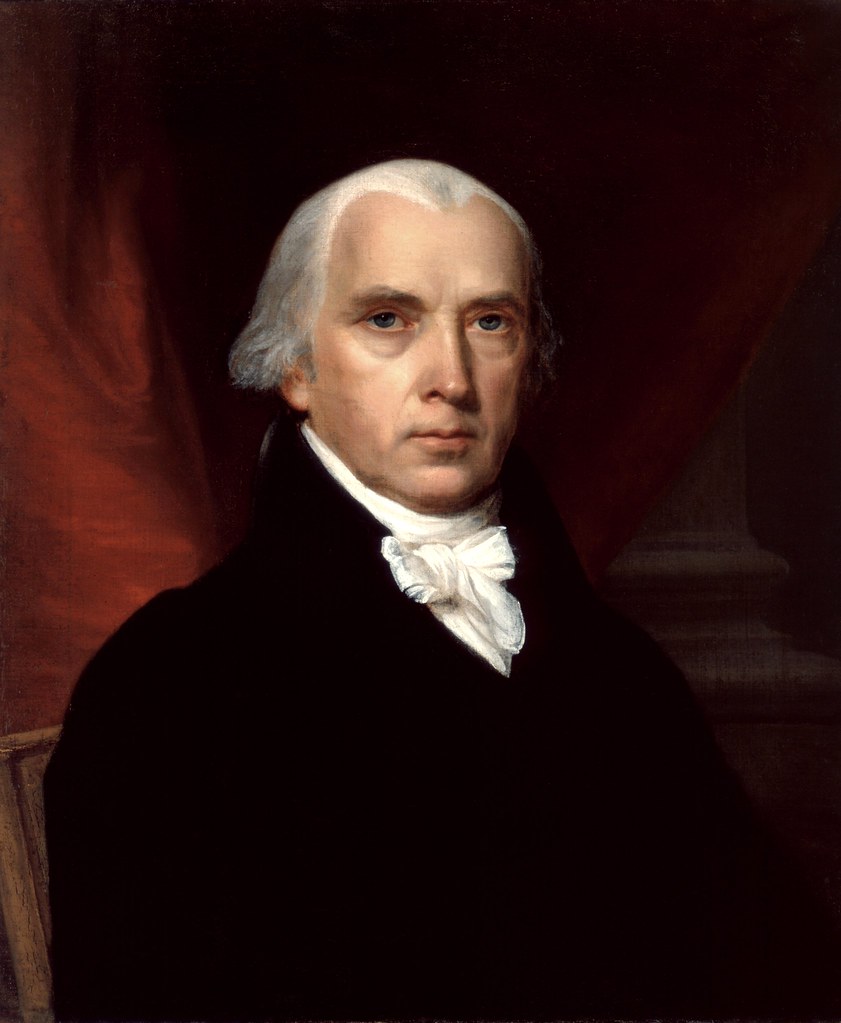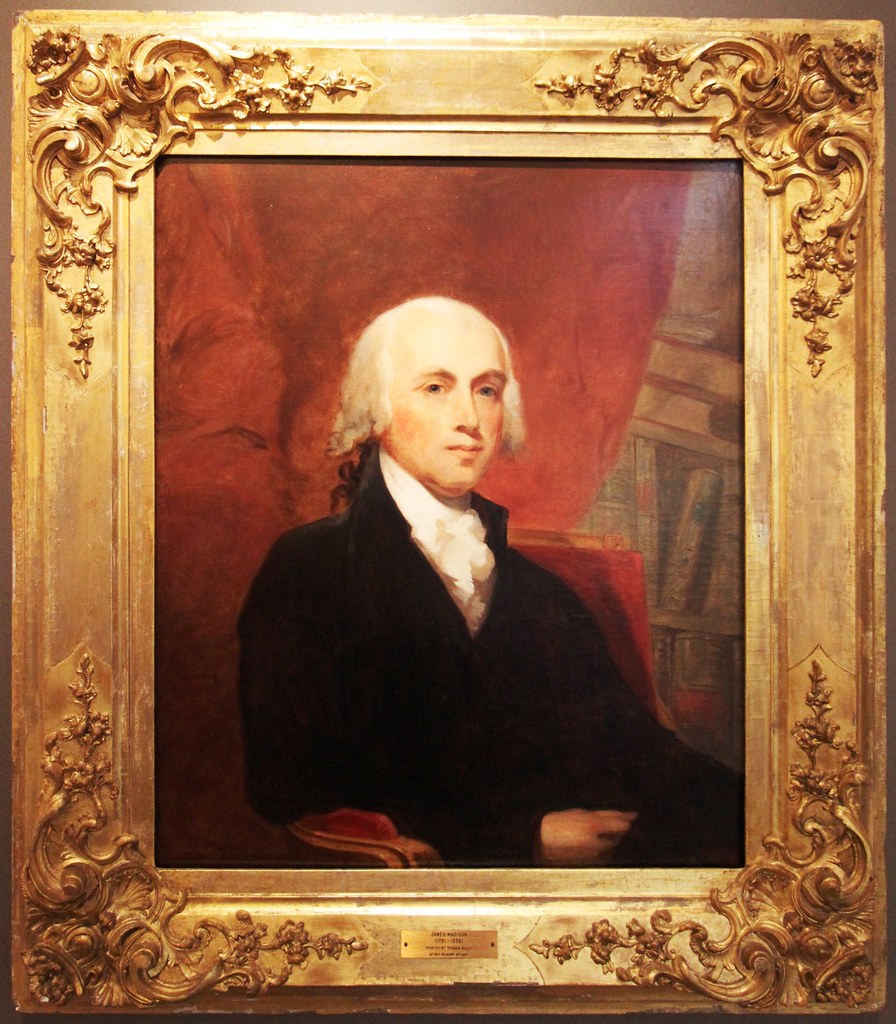James Madison (March 16, 1751 – June 28, 1836) was an American statesman, diplomat, and Founding Father. He served as the fourth president of the United States from 1809 to 1817. Madison is hailed as the “Father of the Constitution” for his pivotal role in drafting and promoting the Constitution of the United States and the Bill of Rights.
Born in 1751, Madison was brought up in Orange County, Virginia, and attended Princeton (then called the College of New Jersey). A student of history and government, well-read in law, he participated in the framing of the Virginia Constitution in 1776, served in the Continental Congress, and was a leader in the Virginia Assembly.
When delegates to the Constitutional Convention assembled at Philadelphia, the 36-year-old Madison took frequent and emphatic part in the debates.

Madison made a major contribution to the ratification of the Constitution by writing, with Alexander Hamilton and John Jay, the Federalist essays. In later years, when he was referred to as the “Father of the Constitution,” Madison protested that the document was not “the off-spring of a single brain,” but “the work of many heads and many hands.”
During the early 1790s, Madison opposed the economic program and the accompanying centralization of power favored by Secretary of the Treasury Hamilton. Alongside Thomas Jefferson, he organized the Democratic–Republican Party in opposition to Hamilton’s Federalist Party. After Jefferson was elected president in 1800, Madison served as his Secretary of State from 1801 to 1809 and supported Jefferson in the case of Marbury v. Madison. While Madison was Secretary of State, Jefferson made the Louisiana Purchase, and later, as President, Madison oversaw related disputes in the Northwest territories.
Madison was elected president in 1808. Motivated by the desire for acquiring land held by Britain, Spain, and Native Americans, and after diplomatic protests with a trade embargo failed to end British seizures of American shipped goods, he led the United States into the War of 1812. Although the war ended inconclusively, many Americans viewed the war’s outcome as a successful “second war of independence” against Britain. Madison was re-elected in 1812, albeit by a smaller margin. The war convinced Madison of the necessity of a stronger federal government. He presided over the creation of the Second Bank of the United States and the enactment of the protective Tariff of 1816.
Retiring from public office at the end of his presidency in 1817, Madison returned to his plantation, Montpelier, and died there in 1836. During his lifetime, Madison was a slave owner. In 1783, to prevent a slave rebellion at Montpelier, Madison freed one of his slaves. However, Madison did not free any slaves in his will. Among historians, Madison is considered one of the most important Founding Fathers of the United States. Leading historians have generally ranked him as an above-average president, although they are critical of his endorsement of slavery and his leadership during the War of 1812. Madison’s name is commemorated in many landmarks across the nation, both publicly and privately, with prominent examples including Madison Square Garden, James Madison University, the James Madison Memorial Building, and the USS James Madison.
According to en.wikipedia.org. Source of photos: internet








![[HONORARY PROFESSOR OF RECORD FOR PRACTICE AND EMPIRICAL RESULTS – 2024] RECORD HOLDER CHU BAO QUE (BAC GIANG PROVINCE, VIETNAM)](https://uskings.us/wp-content/uploads/2024/05/IMG_0386-218x150.jpg)